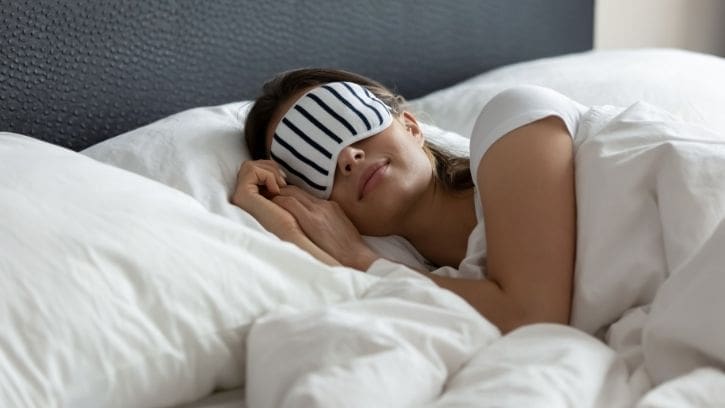The Productive Solopreneur – Early Risers Get It Done
Welcome back to the Productive Solopreneur Series. In the last video, we went over why systems are more important than goals.
We talked about the problem with goals, the power of systems, what’s wrong with goals, and how systems can help solopreneurs more now than ever.
In this video, we are moving closer to productivity with Key #2 Early Risers Get it Done.
The Early Riser Gets It Done
There’s nothing quite like the peaceful calm of the early morning hours. And the fact is, rising early is one of the key things that most successful entrepreneurs do.
The early morning hours are one of the best times to tackle the most important tasks. Rising early allows you to accomplish great things before most of the world has even woken up.
This “mind over mattress” thinking has been around for a long time.
You may even be familiar with Benjamin Franklin’s quote, “Early to bed and early to rise makes a man healthy, wealthy, and wise.”
There are numerous successful entrepreneurs who are early risers:
● Apple CEO Tim Cook gets up as early as 3:45 am.
● Michelle Gas, CEO of Kohl’s department stores, gets up at 4:30 am to go running.
● Former PepsiCo CEO Indra Nooyi rises at 4:00 am and is in the office by 7:00. In 2012, she told Fortune, “They say sleep is a gift that God gives you… That’s one gift I was never given.”
● Twitter co-founder, Jack Dorsey, wakes up at 5:30 am to meditate and go for a six-mile jog.
● Starbucks CEO, Howard Schultz, is up at 4:00 am and in the office by 6:00 am.
● Richard Branson, a business entrepreneur behind the Virgin group of companies, rises at 5:45 am for an early morning workout and breakfast.
And there are many more examples of these early bird business machines.
What makes early risers successful, and how do you become an early riser?
What Does The Science Say?
You may be wondering if this old adage is actually true. Do early risers really live happier, more productive lives?
Here’s what the researchers have to say about it.
Night Owls are More Prone to Negative Thought Patterns
In 2014, the Department of Psychology at Binghamton University completed a study that included 100 undergraduate students.
Their study found that both people who get less sleep, and those who delay sleep, are prone to Repetitive Negative Thinking (RNT).
RNT is a transdiagnostic disorder that can be observed in other disorders such as depression and anxiety. It’s correlated with high levels of worry and negative thought patterns.
Early Risers Increase Their Chance Of Success
In 2010, Harvard Business Review released a study by biologist Christoph Randler about early risers.
367 university students participated in his survey, and they were asked what times of the day they were most energetic.
They were also asked how willing and able they were to take action or change a situation to their advantage.
Randler reported, “A higher percentage of the morning people agreed with statements that indicate proactivity, such as ‘I spend time identifying long-range goals for myself and ‘I feel in charge of making things happen.'”
He went on to say:
“My earlier research showed that they tend to get better grades in school, which get them into better colleges, which then lead to better job opportunities. Morning people also anticipate problems and try to minimize them, my survey showed. They’re proactive. A number of studies have linked this trait, proactivity, with better job performance, greater career success, and higher wages.”
A similar study was conducted in 2008 by Kendry Clay at the University of North Texas. The study focused on 824 undergraduate students who were enrolled in psychology classes at the university.
They were asked questions about their sleep habits and daytime functioning.
The study found that students who preferred the morning had higher GPAs, and those who preferred the evening had lower GPAs.
Both of these studies had the same conclusion: Early risers have a higher chance of success.
7 Ways To Be An Early Riser
Rising early might sound like a really good plan, but it’s not always as easy as it sounds. Thankfully, there are many things you can do to jump-start the day and ditch the bed.

Tip #1: Get to Bed Earlier
One of the easiest ways to get yourself out of bed in the morning is to go to bed earlier at night.
When I was in the Army, waking up at the butt crack of dawn every morning, you can bet I was in bed early. Otherwise, I would have been miserable.
We won’t talk about the jet lag I had when I first got to my duty station in Germany.
And I always thought I was MORE productive at night, but that really wasn’t the case.
Late hours might feel like a great time to be productive, but the truth is:
● Your work is most likely going to get sloppy.
● You have a limited threshold for productivity.
● Your progress is going to stall.
Instead, change it up and do your most productive work during daytime hours and leave the evening for rest, relaxation, and time with your family and friends.
Some people like staying up late and sleeping in late, but this sleep pattern can totally be modified. (think of every time the clocks change, many of us are forced to adapt to daylight savings time).
Try going to bed 30 minutes earlier and then getting up 30 minutes earlier to start the process.
Tip #2: Turn Your Screens Off
We live in a world of screens – computers, smartphones, tablets, and TVs. We’re surrounded by screens.
While all these tools can be super helpful for business, they can also affect your sleep.
The National Sleep Foundation says that technology and screens can affect our sleep in three big ways:
1. Screens and blue light suppress melatonin, the hormone that controls your sleep/wake cycle.
2. They keep your brain active. By keeping your mind engaged with television or work, you’re telling your brain that it’s time to stay awake.
3. Your alerts can wake you up at night. If you keep your mobile phone next to your bed, the sounds of emails, texts, and notifications can disturb your sleep.
To prevent technology from disturbing your precious sleep, turn it off or put it away a few hours before you go to bed. This will help your mind unwind and get you ready for sleep.
While many people use their phones as an alarm clock, this creates a huge temptation to check social media or try to fit in a few more minutes of work late at night.
Do yourself a favor and go buy an alarm clock. Charge your cell phone in another room and get rid of the nighttime distractions.
Strategy #3: Create a Better Sleep Routine
Creating a consistent sleep routine is what pediatricians recommend for parents that desperately want their kiddos to go to sleep at night.
However, this idea is not just for the little ones. A sleep routine is a great way for anyone to get the sleep they need.
If possible, choose the same time to go to bed and to wake up every day. Your body will naturally adjust to your schedule, and you may find that, eventually, you won’t need an alarm clock to wake up.
Crazy, but Sean and I are both that way, and I NEVER thought I would be able to get up without an alarm. We just have a good sleep routine.
The National Sleep Foundation suggests:
● Find a relaxing routine away from bright lights
● Avoid activities that cause stress or excitement
If you need something to occupy your thoughts before bed, try reading instead of watching tv. Reading is known for reducing your stress and helping you kick-start a good night’s sleep.
According to a study by Cognitive Neuropsychologist Dr. David Lewis, reading can reduce stress by more than 65%.
Other things you can include in your winding down nighttime routine are:
● A warm bath
● A warm, non-caffeinated drink
● Meditation or prayer
● Breathing exercises
● Using an app like “Calm,” which helps you wind down each night
You can also journal how to spend your evening time and your quality of sleep, noting what you do each evening and how it affects your sleep.
I found that if I worked after 7 pm, I slept awful. My mind raced; I tried to solve work-related issues, come up with plans, and had a difficult time sleeping if I worked late.
I am better off if I cut it off and start fresh the next day. It took me a while to realize that putting in that extra couple of hours was turning me into a zombie the next day.
Strategy #4: Get Moving
Getting a good night’s rest can be as simple as putting in some good exercise during the day. Intense exercise is the best for a good night’s rest, but any level of activity is helpful.
Exercise has been found to increase time spent in deep sleep, improve the quality of sleep, and it can help you sleep longer.
In addition, physical activity is known to reduce stress and anxiety — two things that can really affect someone’s ability to fall and stay asleep.
Strategy #5: Keep Your Alarm At A Distance
If your main issue is simply waking up in the morning, set your alarm far out of reach. If you can’t keep your fingers off the snooze button, this will force you to get completely out of bed.
Once you’re up, don’t let yourself crawl back under the covers.
Strategy #6: A Little Cold Water
If you’re extra sleepy in the morning, you can always try splashing cold water in your face or even jumping in a cold shower, even if briefly.
The cold water will help energize you and snap you into awake mode.
Strategy #7: Give Yourself a Reason to Get Up
Thinking of a good reason to get out of bed in the morning might be your best motivator for early rising.
Choose something that will be effective every day.
Knowing that you’ll be more productive early in the morning may be just enough to get out of your warm bed.
If not, maybe the thought of a hot cup of coffee or a tasty breakfast might be your reason for leaving those cozy covers.
In the next video in the series, we’ll dive into Productivity Key #3: Destroy Your Distractions.
The Productive Entrepreneur Series
Early Risers Get It Done <- YOU ARE HERE
About Digital Marketing Expert Torie Mathis
 Torie Mathis helps entrepreneurs, like you, use digital marketing to grow your business without wasting time, money, or your sanity. She is a best-selling author, Army veteran, speaker + trainer, and your digital marketing coach. You don't need crazy tech skills, buckets of cash, or dedicated staff to market your business. In fact, you don't even need a lot of time. What you need is to be SMART.
Torie Mathis helps entrepreneurs, like you, use digital marketing to grow your business without wasting time, money, or your sanity. She is a best-selling author, Army veteran, speaker + trainer, and your digital marketing coach. You don't need crazy tech skills, buckets of cash, or dedicated staff to market your business. In fact, you don't even need a lot of time. What you need is to be SMART.
Torie hosts SMART AF, a show for non-techy entrepreneurs looking to grow their business, with her husband Sean and is the creator of SMART AF Magazine. Learn from Torie at the Smart Arsenal and on her channel.
What do you think? Let's talk! Leave a comment.
YOU MAY ALSO LIKE

Is Your Marketing Taking You Away From The Things You Love?
What if you could get amazing results from your marketing without spending more time, more money, AND it was easy and predictable? Sean and I have suffered through it too, and we found the answer...
Hi! I'm Torie!
 I help entrepreneurs (like you) use digital marketing to get more clients + make more money. And I make it easy!
I help entrepreneurs (like you) use digital marketing to get more clients + make more money. And I make it easy!
You don’t need crazy tech skills, buckets of cash, or dedicated staff to market your business. You don’t even need a lot of time.
What you need is to be SMART.
Smart Marketing For
Get Smart AF
DELIVERED TO YOUR INBOX
from your Digital Marketing Coach Torie Mathis!
Let's get SMART!
Let's Connect!

*Posts may contain affiliate links. If you use these links to purchase, I may earn a commission at no additional cost to you.






 I help entrepreneurs learn digital marketing.
I help entrepreneurs learn digital marketing.




0 Comments